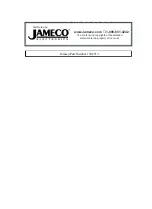
PLACING TOOL IN SERVICE
LUBRICATION
Always use an air line lubricator with these tools.
We recommend the following Lubricator–Unit and Lubricant.
In Line Lubricator:
CPN: 35371111
Lubricant: Protec Engine Oil
CPN: 85448405
Attach the lubricator as close to the tool as pratical.
After every hour of operation and at the beginning of each
work shift, if an air line lubricator is not used, disconnect the
air hose and pour about 3 cc of oil into the air inlet of the tool.
Before storing the tool or if the tool is to be idle for a period
exceeding twenty-four hours, about 3 cc of oil into the air inlet
and operate the tool for 5 seconds to coat the internal parts
with oil.
Failure to properly lubricate the tool will lead piston damage
and could utimately cause material failure
INSTALLATION
Air Supply and Connections
Always use clean, dry lubricated air. Dust, corrosive fumes
and/or excessive moisture can ruin the motor of an air tool.
An air line filter can greatly increase the life of an air tool.
The filter removes dust and moisture.
Make sure all hoses and fittings are the correct size and
are tightly secured. See diagram PP1 for a typical piping
arrangement.
The tool is shipped from the factory with 3/4“ NPT male inlet
thread and quick release coupling.
OPERATION
Accessory Installation
Always turn off the air supply and disconnect the air
supply hose before installing, removing or adjusting any
accessory on this tool or before
performing any maintenance on this tool.
Failure to do so could result in injury.
Retainer
1. Operate the Retainer until it is approximately 90 degrees
to the body of the tool.
2. Insert the accessory into the tool.
3. Operate the Retainer until it is parallel to the tool and it
clicks into position.
Do not repair the tool at the work site. Always take the tool
to a repair shop. Never drag the tool on the ground.
The air port and other openings will become clogged with
dirt and debris.
Compressed air is dangerous. When blowing the line clear
of dirt, wear eye protection and keep the air line directed
toward a safe, clear area.
Always blow out the air line before using to clear the line of
dirt.
Do not operate the tool unless the chisel is against the work
surface since this will cause premature wear of parts.
Always break material to the point of “give”. Cracking does
not result in a complete break.
Clear away rubble as it is broken since uncleared rubble
blocks the point of “give”.
Always take the right size “bite” with the tool. When working
new material, experiment to find the right size “bite” required
for breaking that material efficiently.
If “bites” are too big, the operator will try to pry with the
tool. This could break the chisel. The tool is designed
for demolition, not prying. Always use a pick for prying.
If “bites” are to small, the operator will be working too
slowly.
If the chisel or accessory should become stuck, do not use
excessive force or mechanical means on the tool to pull out
the chisel. Break out the stuck chisel with a spare chisel or
tool.
WARNING
NOTICE
CAUTION
CAUTION
NOTICE
18
Summary of Contents for DCT2PS
Page 60: ...60 EL ...
Page 61: ...61 ...
Page 62: ...62 ...
Page 64: ...64 ...
Page 74: ...MODELS DCT3PS AND DCT5PS PICKHAMMERS PARTS CONT D Dwg TPB723 1 74 25 ...
















































